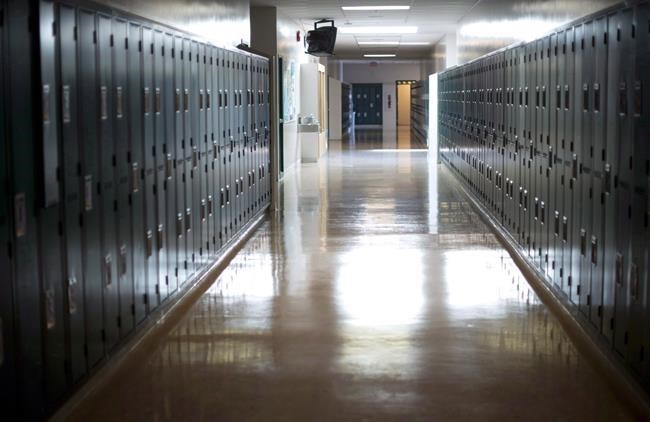TORONTO — Mediation between the Ontario government and the Canadian Union of Public Employees has concluded with no deal ahead of a planned strike Friday by 55,000 education workers.
Education Minister Stephen Lecce said the government is proceeding with legislation, expected to pass Thursday, to impose a contract and ban strikes.
"Today, we made a good faith effort to reach a fair deal," he said at a press conference.
"But all along, CUPE refused to take strikes and disruption off the table. For the sake of Ontario's two million students, to keep classrooms open, CUPE has left us with no choice but to pass the Keeping Kids in Class Act."
CUPE has said its workers, including educational assistants, custodians and administrative staff, will start a strike Friday "until further notice," even if the legislation passes and makes a walkout illegal. Many schools will be closed Friday as a result of the strike.
"It is clear that this government never intended to negotiate," the union said in a written statement.
"The time and effort they have spent on Bill 28, which strips away education workers' charter rights, should have been spent on a deal that would have respected workers and ensured the services that students desperately need are secured."
The legislation sets out fines for violating a prohibition on strikes for the life of the agreement of up to $4,000 per employee per day, while there are fines of up to $500,000 for the union.
Lecce suggested the government would pursue those penalties.
"You've heard it directly from union leaders that CUPE will strike tomorrow," he said. "If they do so once this legislation is passed, this strike will be illegal and we will use every tool we have to end their disruption."
Laura Walton, the president of CUPE's Ontario School Board Council of Unions, has said the union would foot the bill for penalties levied against workers, and has suggested that CUPE is looking for outside financial help from other labour groups.
Many school boards across the province, including the Toronto District School Board, have said schools will be closed during a strike, while others plan to move to remote learning.
The Ministry of Education says in a memo obtained by The Canadian Press that school boards should "implement contingency plans, where every effort is made to keep schools open for as many children as possible."
If boards determine they can't safely open schools without the CUPE members, the ministry says "school boards must support students in a speedy transition to remote learning."
The government originally offered raises of two per cent a year for workers making less than $40,000 and 1.25 per cent for all others, but Lecce said the new, imposed four-year deal would give 2.5 per cent annual raises to workers making less than $43,000 and 1.5 per cent raises for all others.
CUPE has said that framing is not accurate because the raises actually depend on hourly wages and pay scales, so the majority of workers who earn less than $43,000 in a year wouldn't get 2.5 per cent.
CUPE has said its workers, which make on average $39,000 a year, are generally the lowest paid in schools and had been seeking annual salary increases of 11.7 per cent.
The union's original proposal also included overtime at two times the regular pay rate, 30 minutes of paid prep time per day for educational assistants and ECEs, an increase in benefits and professional development for all workers.
Several other unions, including the teachers' unions currently in bargaining with the government, have expressed solidarity with CUPE. That also includes the Labourers' International Union of North America — LiUNA — which endorsed Premier Doug Ford's Progressive Conservatives in the spring election.
The Ontario Public Service Employees Union has said the 8,000 education workers it represents will be walking off the job Friday in solidarity with CUPE.
Many boards with staff represented by that union had previously said the CUPE strike would close its schools, although boards in Sudbury and Simcoe County said Thursday they would close schools Friday as a result of OPSEU's planned action.
Prime Minister Justin Trudeau, as well as the federal justice and labour ministers, have criticized the Ontario government for pre-emptively including the notwithstanding clause in the education worker legislation, saying it shouldn't be used to suspend workers' rights.
The clause allows the legislature to override portions of the Canadian Charter of Rights and Freedoms for a five-year term.
This report by The Canadian Press was first published Nov. 3, 2022.
Allison Jones, The Canadian Press



